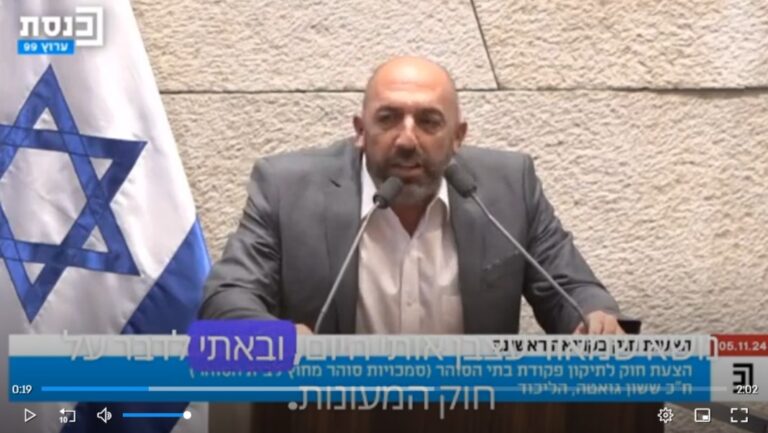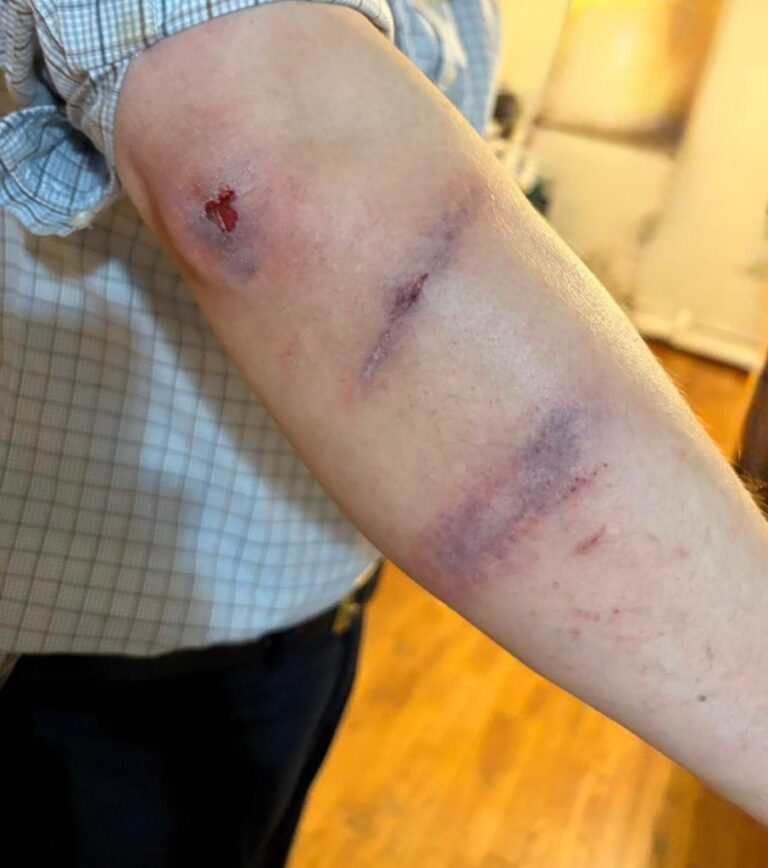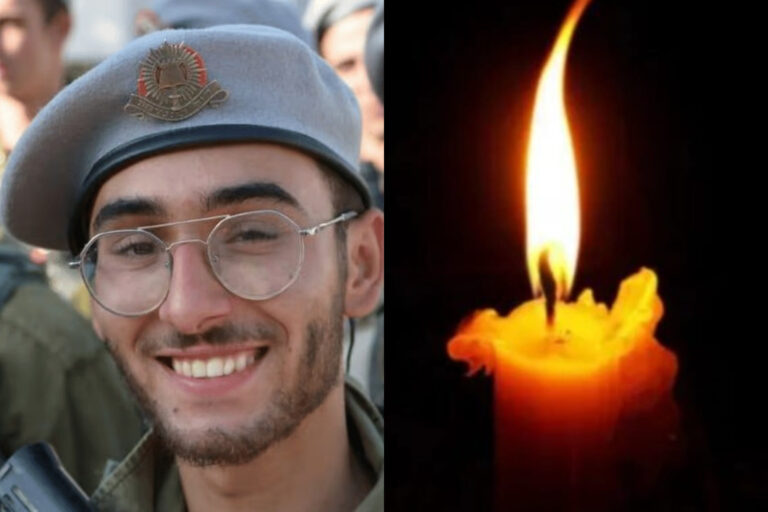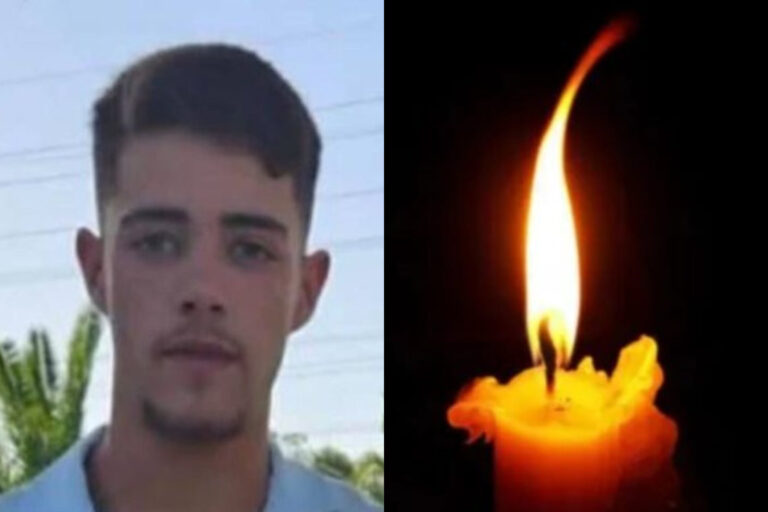 To my tyere brothers and sisters in Klal Yisroel, shetichyu
To my tyere brothers and sisters in Klal Yisroel, shetichyu
Baruch Hashem, I had some time to visit with my family today, and to share some Torah thoughts on Pesach and the Hagadah. The children suggested we start with the 15 steps of the seder, Kadaish, urchatz etc, so we started singing it all together. “Kadaish, glaich ven der tatte kumpt ahaim fun shul darf er machen Kiddush…..” As soon as the father comes home from shul, he needs to make Kiddush…..”
Then my little son, Uziel, yells out, “Say it like this! Glaich ven der tatte kumpt ahaim fun jail, darf er machen kiddush!” As soon as the father comes home from jail, he needs to make Kiddush!”
We are all davening together to our Father in Heaven to free me this week,
so that Uziel’s words will come true, and I will be able to say Kiddush by the seder together with all my family, sheyichyu.
We know that “machshovoh mo’eles,” that when we think favorably or sympathetically of another Yid, wishing him or her good, the very thought itself accomplishes something. So from the depth of my heart and neshama, I want to express my tremendous hakoras hatov to all the Yidden who think about me and my family, who are sharing our pain and suffering.
Each Letter Brings Light and Warmth
Baruch Hashem for all the letters I’ve received from you and from your children. I thank each and every one for the chizuk, and for all of your brochos and increase in Torah and mitzvos, and for just letting me know in writing that you are with me and with my family.
Whether it is with additional maasim tovim or hachlotos tovos, whether by saying Tehilim, or tefillos betzibur…. All of this is po’el the geulah and yeshuah from Hashem Yisborach.
Please know that each letter brings light and warmth into a place that is dark and cold. Each letter is cherished that even in the very limited space of my cell, I keep each and every single one with me, so that the light and warmth they give out keeps on shining in this darkness.
Although the schedule and situation here in prison is such that it is not possible for me to answer each one, please know that I thank you for sharing your thoughts and special deeds with me, and lifting my spirits.
There is a powerful teaching from Reb Levi Yiztchok Berditchever on “machshovoh mo’eles” how the very act of thinking can bring about a positive result.
In the Hagadah we say, “Baruch Hu sheHakodosh Baruch Hu chishev es hakaitz, laasos kemo sh’eomar. Blessed is He that Hakodosh Baruch Hu calculated the keitz” [the time the golus ends], to do as He said.
This can be explained by the Medrash: the malach of Mitzrayim complained that the Yidden were being freed too early, their “sentence” was not up yet. The gezairoh was that the Yidden would be enslaved for 400 years and they had been in Mitzrayim for only 210. There was still a balance of 190 years for them to be enslaved, the malach pointed out. Why were they being freed before the appointed time?
Their Anguish Over The Future Golus Helped To Shorten It
The answer is that Hakodosh Baruch Hu made it known to each of the avos that their children would be enslaved for 400 years. The knowledge that their descendants would suffer so much gave the avos such anguish that the amount of time they suffered over the future torment of their children was included in the 400 years. Hashem considered their tzaar as part of the yesurim the Yidden were meant to suffer in slavery.
This is what is meant by “chishev es hakaitz”–that the kaitz, the end of golus, was brought about partly by the pain our fathers experienced as they agonized over the future golus.
Even though their pain was mental anguish, not the pain of slavery, it was considered equivalent to actual suffering in golus. This thought is hinted at by the words “chishev es hakaitz,” because the numerical value of the letters is 190. This is precisely the number of years that our fathers subtracted from the 400 years of slavery by suffering the sorrow of golus in their “machshovoh.”
Studying this pshat, we understand that the machshovos of Yidden who truly feel the pain of another Yid can actually reduce the pain the other Yid will have to endure. What an incredible lesson.
We can also learn from this pasuk that even as we suffer the hardships of golus, we need to look ahead to the kaitz, to always to see the geulah on the horizon. We should never view golus as something that is fixed and inevitable.
Even though Hashem gave Avrohom a precise and definite time frame regarding how long his children would need to be enslaved in a strange land, the timetable was shortened from 400 to 210 years by including the hishtadlus of our fathers.
The lesson is clear that all the hishtadlus that so many Yidden are doing for me, and all the good and kind machshovos that so many Yidden have for me will surely shorten the gezairoh and golus. May Hashem Yisborach fulfill the pasuk “chishev es hakaitz” for me and for every Yid and bring the geulah quickly, suddenly, this very day.
And my little Uziel will be able to say the 15 steps of the seder beginning with Kadaish: as soon as Tatty comes home from jail, we make kiddush!”
Yehi ratzon that we are granted the chairus proti together with the chairus kloli that we daven for. May Hashem bring Moshiach so we will be able to join him as his table in freedom from all pain and evil, and bring our korban pesach this year in the Bais Hamikdosh hashlishi, omain.
A kosheren un frailechen yom tov,
Besuros tovos,
Sholom Mordechai Halevi Ben Rivka Sheyichye











3 Responses
I cant begin to imagine the pain and suffering this family is going through and ofcoarse Sholom Mordechai himself. Someone that has such emunah and bitachon during such a difficult time is truly inspiring. I have him in mind every day during davening and I am certain that a neis will take place sooner rather than later
If the Supreme Court were to grant cert, the case might be heard in the next session. Unfortunately, the liklihood of the court hearing the appeal is relatively small, nothwithstanding the widespread criticism of the sentencing disparities and the most optimistic outcome would be a remand back to the trial court. Thus, under the most likely scenario, there is only a very small chance of any near-term change in SMR’s circumstances, although we can always be hopeful.
What’s the bottom line? How did the appeal go??